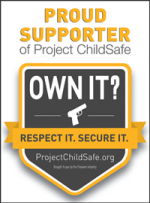For example, groups seeking tighter gun laws have been trying to get away from the “gun control” label since well before ARS started testing for a new messaging strategy last year. Better options, they say, are “gun violence prevention” and “preventing gun tragedies.”They have a new playbook too:
"We've stepped away from a debate about guns that was sort of postured pro-gun or against-gun,” said Peter Ambler, the PAC’s executive director, “into one that’s centered around data-tested ideas like the background checks that we know increased public safety and save lives, but don't sort of disapprove of the individual gun owner and don't disapprove of the responsible use of firearms in society.”
And while Hillary Clinton promised to “keep taking on the NRA” in October, she should maybe stop, according to ARS’ findings, and instead take on the “gun lobby.”
“The NRA has great favorabilities in a lot of places,” said Global Strategy Group Jeff Pollock, pointing to the 144-year-old organization’s popular — and apolitical — hunting and safety training programs.
ARS invested heavily in developing the new message, hiring Greenberg Quinlan Rosner to run several polls, Global Strategy Group to host online discussion boards and Anzalone Liszt Grove to hold five focus groups around the country with gun-owning women, millennials and minority voters.
The strongest message in favor of stronger gun laws, Walker said, is “with freedom comes responsibility.”
That language mirrors that of gun rights groups, by design. The NRA calls itself “freedom’s safest place,” for example.
“Essentially, we co-opted their language,” Walker said. Similarly, another point stresses that “as adults, we have a responsibility to make our country a safer place to live.”
ARS’ strategy also subtly suggests that its allies are overplaying some strategies. “Relying on victims’ and survivors’ stories alone can amplify feelings of hopelessness,” its strategy booklet cautions.
“Mothers have also been powerful advocates for stronger gun laws, but we need to show through our messengers that they are not the only ones who want to reduce gun violence,” it advises, before suggesting bringing in more men, gun owners, hunters and experts like ER doctors and police.It appears from the article that they may have finally figured out that the power of the NRA is not money, but the activists who contact their legislators. I especially liked this line:
“Their money isn’t that big,” Pollock said. “It’s not what they do. Their power rests in their stupid postcards and their ability to terrorize members on the Hill and have them panicked about their rating.”Politico also pointed out that that what goes unsaid is the gun ban lobby far out spends the NRA.
The article finishes up with some interesting data that confirms previous reporting on the views of so-called "millennials" and the issue of gun ownership:
ARS also developed specific messages to turn out parts of the original Obama coalition of blacks, Hispanics, women and millennials. The latter might actually be the most difficult to persuade. ARS’ pollsters found that millennials' views on guns track more with the party ID than their age, and other studies have found that younger voters are especially open to gun rights, seeing them in the same vein of personal liberty as gay rights.Jenn Jacques who writes at BearingArms.com appeared on NRANews.com's Cam and Company yesterday and said that the gun ban groups may try to change their messaging to talk about freedom and safety, it's really still just about control.











.JPG)







